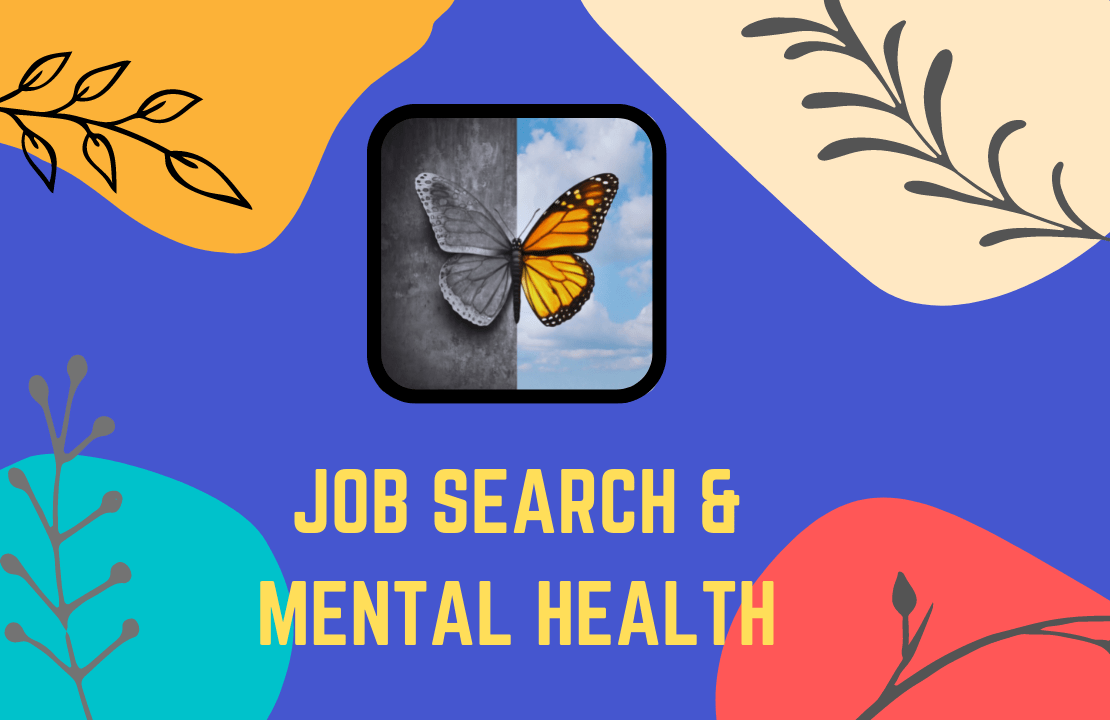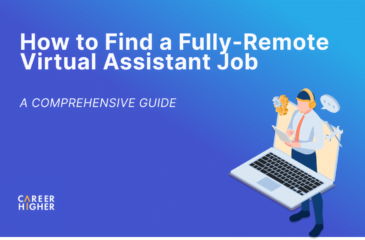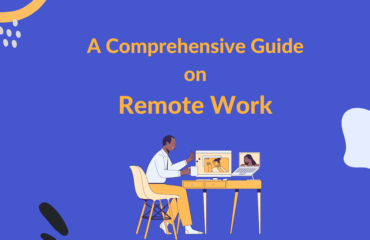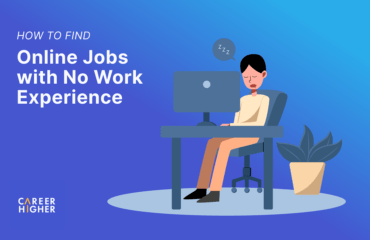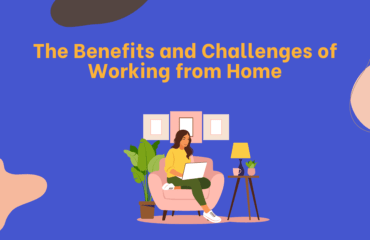Table of Contents
A job search can be exhausting, challenging, and emotionally draining. According to the US Bureau of Labor Statistics, a candidate takes 27 weeks or more on average to find a job. 27 weeks is a long time! Thus, it is important to take care of your well-being while looking for a job. Let’s explore some ways to protect your mental health and adopt a healthier lifestyle.
1) Develop a job search plan
A job search plan allows you to take a strategic approach. It has defined goals, timelines, and tools to explore new opportunities. This makes it cost and time-efficient. Not having a plan may result in chaos, leaving you anxious and frustrated. Thus, chalk out an outline of your plan before you start your job search.
2) Take breaks
Long working hours are proven to affect professionals’ mental health. Yet, it is common to sit with your laptop for hours viewing jobs and applying without disruption. This not only impacts your body mentally but also has severe effects physically. Therefore, it is necessary for you to take effective breaks during your job search.
Set alarms and reminders to pause or finish for the day. In fact, add how often you would like to work and prioritize breaks, in your job search plan. Some effective tools to help you take breaks are-
- EyeLeo– EyeLeo is designed to remind users regularly to take long or short breaks for their eyes, depending on their preference.
- Time Out– Time Out reminds you every few minutes to take a break or indulge in an activity, based on customizable settings.
- Workrave– Workrave notifies you to take a break based on your keypad and mouse usage.
LinkedIn and Indeed will always have results for your searches. It is up to you to stop at the right time. Taking regular breaks allows you to relax, restoring your energy and mental strength. We recommend optimizing these breaks by doing a short exercise, taking a power nap, or looking out the window.
3) Spend time on your hobbies
According to research, having a hobby enhances your mental health. It distracts you and keeps you busy. Hence, spending adequate time on your hobbies is essential to keep your mind calm. Think smart and accommodate your hobbies in your breaks. For example, if you like going for evening walks, start working on your job search at 4 pm, take a break at 5, and go out for your walk. Choose a flexible schedule that allows you to spend time on things you love. If you are looking to adopt a therapeutic hobby, here are some suggestions:
- Painting, coloring, and sculpting
- Yoga
- Listening to music
- Writing a diary
- Reading books or blogs
4) Consult career strategists
Career strategists help you focus your job search. A more structured approach reduces apprehension and chaos, favoring your mental health. If you are frustrated by constant rejections and ineffective applications, reach out to a career strategist. They will understand your needs and provide befitting solutions. Additionally, you may refer to Careerhigher’s career advice section for assistance. We have listed a few other resources too.
- So Good They Can’t Ignore You: Why Skills Trump Passion in the Quest for Work You Love– book by Cal Newport
- Designing Your Life: How to Build a Well-Lived, Joyful Life– book by Bill Burnett and Dave Evans
- Switch, Pivot or Quit– podcast by Ahyiana Angel
5) Seek out emotional support
‘Everyone’s winning the job search game (Except Me)’ is a common mindset some candidates adopt. This gives rise to job search depression. While this should be addressed immediately, very few candidates seek out professional support. If you feel this way, we strongly advise you to seek help from a therapist. Some resources that you can use to find a therapist are:
- TalkSpace
- GoodTherapy- Find a therapist
- PsychologyToday- Find a therapist
- Psychotherapy- Find a therapist
- BetterHelp
If you are uncertain about therapy, try speaking with a close friend or a family member, and tell them how you feel. As it is well said by Glenn Close– “What mental health needs are more sunlight, more candor, and more unashamed conversation.” Letting your feelings of despair and rejection out can help you achieve a positive mindset, enhancing your chances of succeeding in your job search sooner.
6) Practice mindfulness
Mindfulness is a mind-body approach to help people manage their thoughts and feelings. Experts highly recommend practicing mindfulness to reduce stress, depression, or anxiety. If your job search has taken a toll on your mental health, we strongly advise you to practice mindfulness meditation. This will help you:
- Enhance self-confidence and awareness
- Manage stress, anxiety, and depression
- Lead stressful situations better
- Control your negative emotions
- Make informed decisions
Here is a list of resources you can use:
Your job search can be daunting, severely impacting your mental health. Thus, it is essential to set your priorities right and protect your mental health over everything. You can only do a good job with a healthy mind and body. Be organized, take breaks, discuss your issues with people you trust, and spend time doing things you love. Believe you can, and you will land your dream job soon! If you need any help with your job search, we are here to help you.
